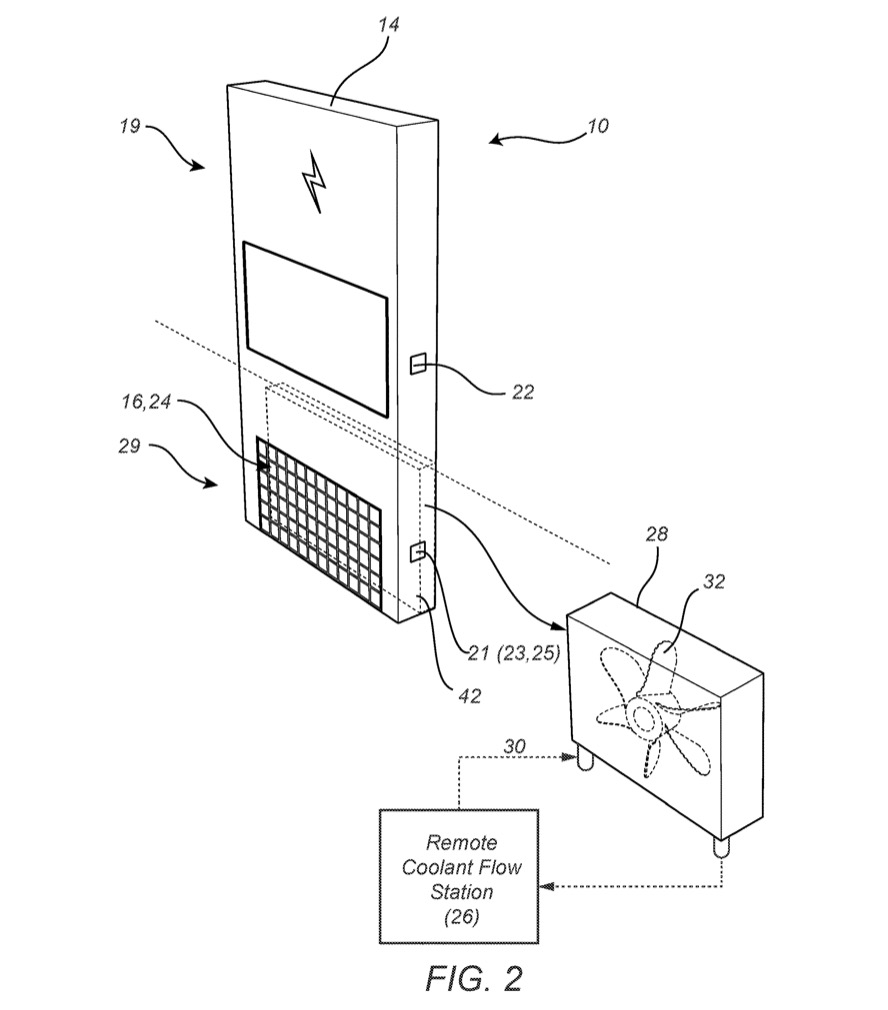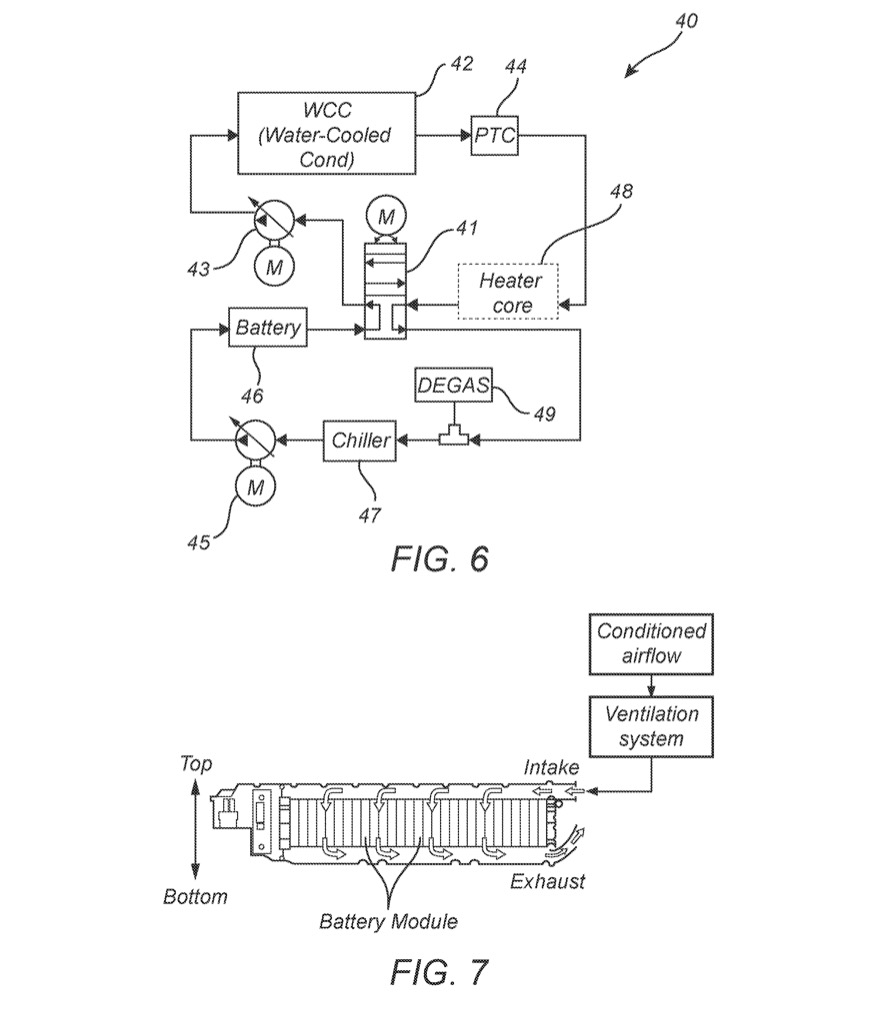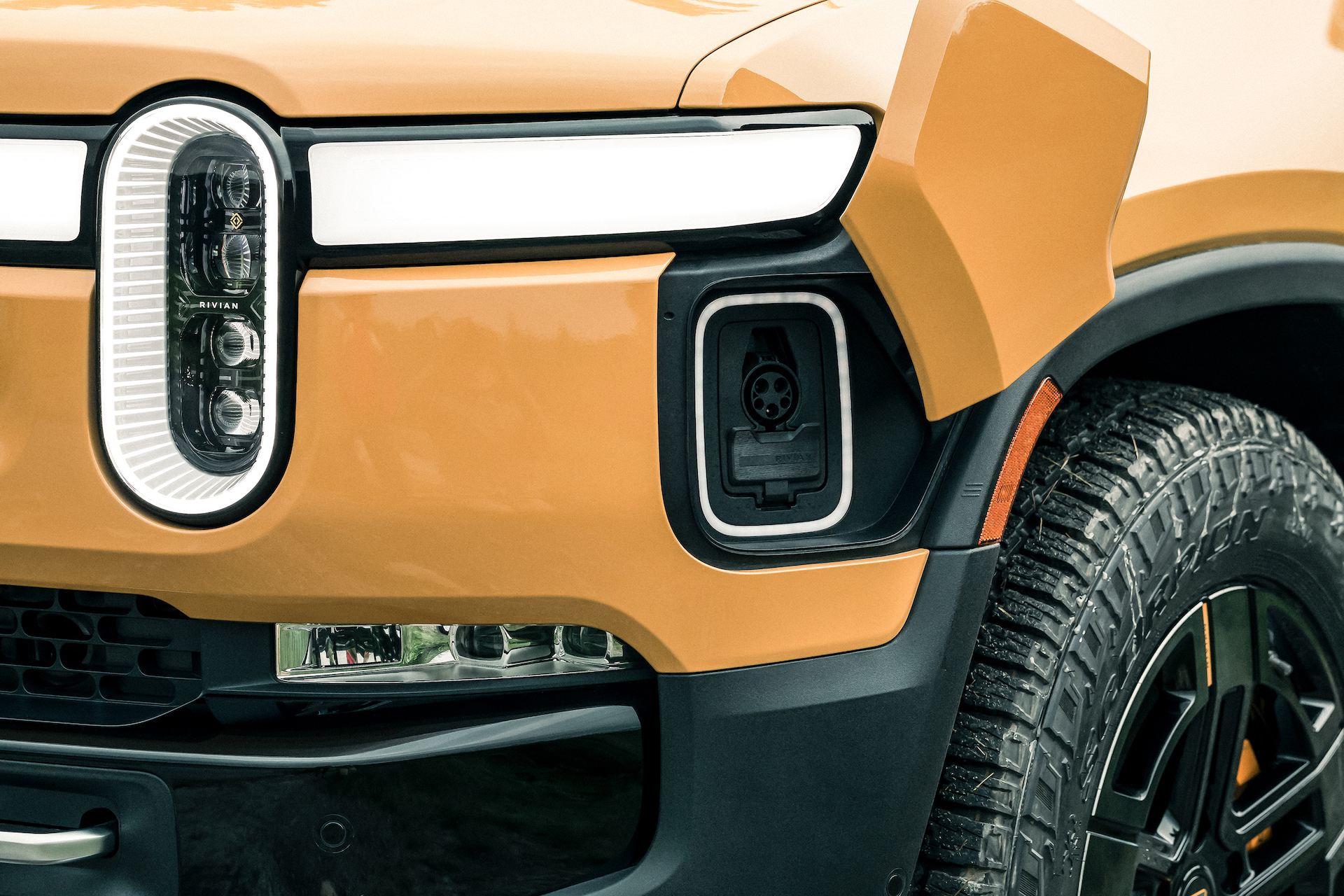A latest patent submitting signifies Rivian is seeking to different cooling strategies as a solution to pace up EV fast-charging.
A patent software revealed Feb. 14 by america Patent and Trademark Workplace (USPTO) notes that thermal administration throughout charging can take up numerous energy. As an answer, it proposes shifting among the load from the car’s cooling system to the charging system.
Battery packs have to be inside a sure temperature window to attain peak charging pace, and in line with Rivian, that cooling takes actual energy, which detracts from peak cost charge. That cooling demand will increase from a couple of kilowatts with AC charging to fifteen kw or extra with DC quick charging, the corporate claims within the patent software.

Rivian EV charger cooling system patent picture
Cooling wants for charging additionally necessitate a bigger air-con system which will use extra energy the remainder of the time when driving, too, Rivian famous.
The corporate has boasted that its cooling methodology, which depends on a cooling plate operating horizontally via the pack, is a extra environment friendly solution to average the pack’s temperature, although. And the cabin cooling system in some EVs now does assist pace up fast-charging, so this is not a left-field concept.
The doc lays out a protracted record of potentialities for different cooling preparations—together with fanning cool air below automobiles—maybe hinting that, whereas Rivian hasn’t arrived at anyone methodology for doing this, the corporate needs to say the concept. That is usually the motivation for automotive patents, whether or not the automaker submitting them has agency manufacturing plans for a given function or not.

Rivian EV charger cooling system patent picture
In any case, evidently this could take a large amount of vitality on the charging station stage to make any distinction for the car, so it is unclear how possible it might be. Different corporations have checked out methods to enhance charging efficiency via extra environment friendly cooling, nevertheless.
Ford and Purdue College has helped develop a charging cable that will depend on the section change of coolant from liquid to vapor, offsetting the necessity for bulkier cables. That is one thing charging {hardware} provider Huber+Suhner has predicted is likely to be wanted to help very quick electric-car charging.


